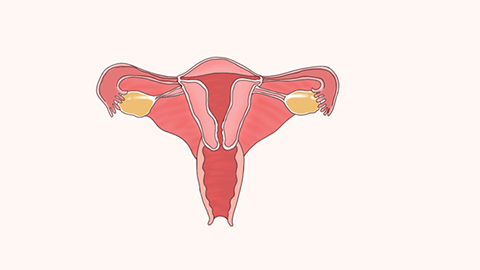What causes a thickened endometrium?
Generally, thickened endometrium may be caused by hormonal fluctuations during the reproductive years, hormonal imbalances during the perimenopausal transition, simple endometrial hyperplasia, complex endometrial hyperplasia, endometrial polyps, and other related factors. It is recommended to seek timely medical consultation to determine the underlying cause and receive appropriate treatment under a physician's guidance. Detailed explanations are as follows:

1. Hormonal fluctuations during the reproductive years: In women of reproductive age, irregular ovulation can lead to continuous estrogenic stimulation of the endometrium without sufficient antagonism from progesterone, which can easily result in endometrial thickening. This is a common physiological phenomenon that does not require special treatment. Regular gynecological ultrasound examinations are recommended to monitor changes in endometrial thickness.
2. Hormonal disturbances during the perimenopausal transition: As ovarian function declines before menopause, hormonal secretion becomes imbalanced, with relatively dominant estrogen levels, which can cause endometrial thickening. In daily life, it is important to maintain a regular sleep schedule, avoid staying up late, reduce consumption of high-sugar and high-fat foods, and regularly monitor endometrial thickness.
3. Simple endometrial hyperplasia: Often caused by long-term hormonal imbalance leading to excessive endometrial proliferation, this condition may present with no obvious symptoms or be accompanied by increased menstrual flow. Patients may follow medical advice to use hormonal-regulating medications such as dydrogesterone tablets, progesterone capsules, or medroxyprogesterone acetate tablets to improve endometrial status.
4. Complex endometrial hyperplasia: This condition carries a slightly higher risk compared to simple hyperplasia and is caused by prolonged abnormal hormonal stimulation, which may lead to prolonged menstruation. Patients may follow medical advice to use medications such as norethisterone tablets, levonorgestrel-releasing intrauterine systems, or dydrogesterone tablets. Follow-up examinations are recommended every 3–6 months.
5. Endometrial polyps: Localized endometrial proliferation caused by inflammation or hormonal stimulation may lead to the formation of polyps, resulting in endometrial thickening, which may be accompanied by abnormal bleeding. If medication proves ineffective, hysteroscopic endometrial polypectomy can be performed to remove the polyps and restore normal endometrial thickness.
In daily life, it is important to maintain good menstrual hygiene, frequently change sanitary products, and avoid excessive fatigue during menstruation. Additionally, intake of estrogen-containing health supplements should be minimized, and a healthy body weight should be maintained to reduce the risk of abnormal endometrial thickening.





